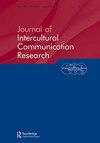阿拉伯海湾国家科威特关于妇女加入警察部队的意见表达的线下和线上性别差异
Q1 Social Sciences
Journal of Intercultural Communication Research
Pub Date : 2021-07-14
DOI:10.1080/17475759.2021.1950810
引用次数: 1
摘要
摘要本研究运用沉默螺旋理论,考察了四个文化维度(集体主义、对变革的抵抗、对宗教的承诺以及父权制和等级制度)对科威特警察部队女性在不协调的线下和线上舆论氛围中意见表达的性别差异的影响。534名受访者的回答表明,表达倾向和对女性的个人支持是意见表达的积极预测因素,而对孤立的恐惧和受访者对伊斯兰教在这个问题上的立场的信念都是消极预测因素。两种性别在离线表达意见时都受到相同变量的影响,但在在线时各自受到不同变量的影响。研究结果表明,女性比男性更能从网上讨论中获益。本文章由计算机程序翻译,如有差异,请以英文原文为准。
Offline and Online Gender Differences in Opinion Expression about Women Inclusion in the Police Force in the Arab Gulf State of Kuwait
ABSTRACT Employing the Spiral of Silence theory, this study examines the influence of four cultural dimensions (collectivism, resistance to change, commitment to religion, and patriarchy and hierarchy) on gender variations in opinion expression in incongruent offline and online opinion climates about women working in the police force in Kuwait. The response of 534 individuals indicated that a tendency for expressiveness and personal support for women were positive predictors of opinion expression, while fear of isolation and respondents’ beliefs about the stance of Islam on the issue were both negative predictors. Both genders were affected by the same variables when they expressed their opinions offline, but they were each affected by different variables when online. The results suggest that women benefit from online discussions more than men.
求助全文
通过发布文献求助,成功后即可免费获取论文全文。
去求助
来源期刊

Journal of Intercultural Communication Research
Social Sciences-Cultural Studies
CiteScore
2.00
自引率
0.00%
发文量
20
 求助内容:
求助内容: 应助结果提醒方式:
应助结果提醒方式:


